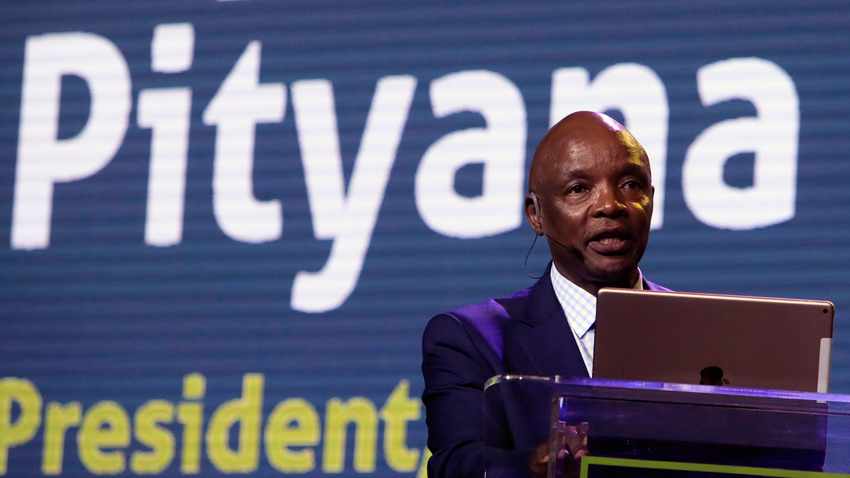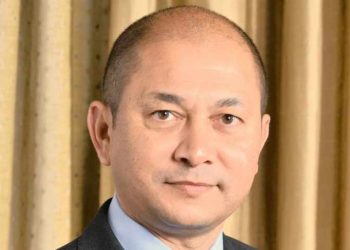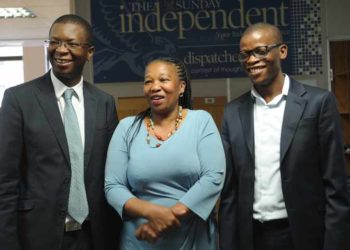CAPE TOWN – The average remuneration of public servants in SA is high by international standards and when compared to private sector employees and per capita gross domestic product (GDP), according to a report by Intellidex, a leading capital markets and financial services research house.
The report titled “The Public Sector Wage Bill-an evidence-based assessment and how to address the challenge” found that teachers’ salaries, measured in purchasing power adjusted US dollars, were nearly 50 percent higher than the Organisation for Economic Co-operation and Development (OECD) average.
Business Unity SA (Busa) commissioned Intellidex to research various aspects of the public wage bill in South Africa and they produced the report which utilises data released by National Treasury, as well as the Quarterly Employment Survey released by StatsSA, which measures the full public sector.
The report showed that the country’s public sector wages were higher than the average of 46 countries looked at by the International Monetary Fund (IMF). These ranged from Bangladesh to Norway and Denmark and included countries from Europe, Africa, South America and elsewhere.
Busa president Sipho Pityana said the organisation commissioned this work because it was of the view the country needed an objective set of data that could inform engagement between Government, business, and labour on enabling a public service that was sustainable and productive and was remunerated accordingly.
“The recent Medium-term Budget Policy Statement (MTBPS) has highlighted the importance of addressing the public sector wage bill and engaging social partners on this issue given the perilous state of the government’s finances.
“We remain committed to this engagement with partners and trust this report will be a critical input to such engagement,” he said in a statement on Monday.
Payroll costs in South Africa are larger than the global norm as a percentage of GDP, public spending, or tax revenues, according to the report. “Public sector wage increases as a percentage of tax revenues has grown from 31 percent before the global financial crisis to 41 percent in 2009/10, in face of global slowdown, and has stabilised to around 37 percent. The percentage exceeds 50 percent of revenues this year and will be 47 percent next year and 45 percent in 2022/23.”
Business Leadership SA (BLSA) chief executive Busi Mavuso said in the private sector, labour markets were competitive and firms had to pay salaries to attract the workers they needed.
“But when there is a major economic contraction, this is reflected in wages as firms react defensively to protect themselves. That has been clear during the Covid-19 crisis. Between the first and second quarter this year, nominal wages fell by 8 percent in the private sector, but grew by 1 percent in the public sector, according to StatsSA data. (Note this is wage levels of those who remained employed. The total wage bill in the private sector fell by 15 percent.)
“Wage responsiveness to economic conditions is a reality that the private sector must live with and one the public sector has not had to consider for over a decade. We need more thinking about the productivity of the public sector and how the state can maximise the value it adds in our economy,” she said on Monday.
The IMF data on 46 countries for 2017 shows public sector compensation for the national government, the provincial government and state entities was an average of 9.4 percent of GDP. South Africa was at 11.6 percent – 25 percent higher than the international average – and 15 percent of GDP in 2019.
The report recognises differences in constitutional models, but it is clear that South Africa has the highest ratio of compensation to public spending, with over 35 percent allocated to compensation. This is one-third higher than the average of the other countries in the basket, which average at 26.1 percent.
Compensation spending went up from R154 billion in 2006/7 to R518bn in 2018/19, reflecting a 78 percent inflation-adjusted increase, while increases in headcount went up by 22 percent, according to the report. Payroll costs have increased by a compound average of 10.5 percent since 2006/7, compared to average growth of nominal GDP of 8.2 percent.
The report found that there was no indication that there were any productivity increases to justify wage increases and that increase in wage costs from 2006-2019 outstripped the rate of economic growth and productivity.
Acting head of the budget office in the National Treasury Edgar Sisho told the joint committees on finance in the National Assembly and National Council of Provinces recently that while the salary increases for public servants happened over the past 15 years, this was despite the economy growing at a small rate.
“It’s important to understand when we talk about our proposals in the wage bill, which is effectively a wage freeze, we don’t miss the historic reality and current reality that public servants have for years received increases that have outstripped the growth of our economy,” said Sishi.
He said the wage bill was currently sitting at more than R630bn and this was unsustainable.
BUSINESS REPORT


















